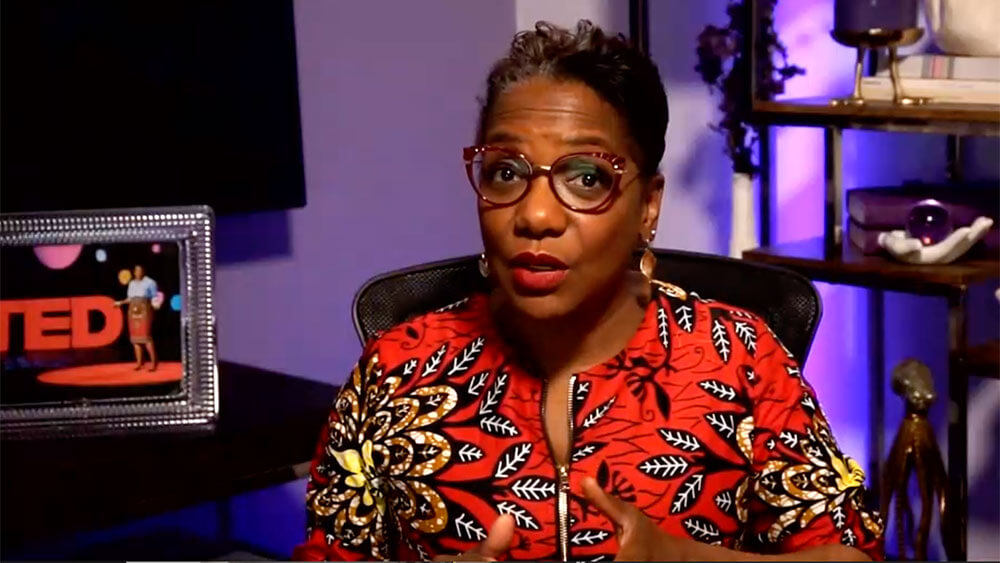
Janet Stovall, senior client strategist at NeuroLeadership Institute, speaks remotely during PCMA EduCon 2021. “No matter where you sit on the org chart, you can be an ally in the workplace,” she said during her Main Stage presentation.
If you guessed that the chief human resources officer (CHRO) is responsible for diversity, equity, and inclusion (DEI) efforts at the majority of organizations, you are mostly right. According to 383 U.S. employers responding to XpertHR’s Diversity, Equity, and Inclusion Employer Trends Survey 2021 in May, at just over one-half (52 percent) of employers, the CHRO is either partially or fully responsible for their organization’s DEI efforts.
The CEO, president, or owner is at least partially responsible for DEI at 36 percent of organizations, followed by volunteer employee groups (such as employee resource groups, ERGs) (15 percent), chief DEI officer (11 percent), COO (7 percent), CFO (5 percent), general counsel (4 percent), and outside consultant(s) (2 percent).
The most surprising stat? At 17 percent of responding organizations, no one is officially responsible for DEI. Janet Stovall, senior client strategist at NeuroLeadership Institute, and PCMA EduCon 2021 Main Stage speaker, would say that lack of intent or focus is such a missed opportunity. “Business,” she told the EduCon in-person and digital audience, “is where we can really start undoing the damage of racism.”
The survey conducted by HR services provider XpertHR found that while seven out of 10 responding companies do offer anti-harassment training, the least popular DEI instruction option is allyship, provided at only one out of 10 companies. Yet allyship is where Stovall said she sees the greatest potential for moving the needle on inclusion in the workforce. “No matter where you sit on the org chart, you can be an ally in the workplace,” she said during her presentation.
“But if you’re in a decision-making position,” she added, “you can fight inequity by advancing what I like to call ‘3R DEI’…. Identifying real problems, assigning real numbers, and instituting real consequences.” (Convene previously wrote about Stovall’s 3R approach.)
One sure way of identifying problems is to conduct a DEI audit, which the Institute of Internal Auditors (IIA) defines as a “structured assessment of the degree of diversity at all levels of the organization; pay equity by race, gender, and ethnicity; human resource policies that ensure a framework supporting DEI; the diversity of the company’s supplier base; and other race- and gender-related factors.”
Only 14 percent of responding organizations to the survey have conducted a DEI audit, although 29 percent are planning to conduct one in the near future. On the flip side, nearly four out of 10 companies have not conducted a DEI audit nor do they intend to do so.
As Stovall underscored during her presentation, racial equity doesn’t happen by itself but requires a strategic approach at the structural level. “Ask yourself this,” she said during her talk. “What if organizations stopped waiting for racial diversity and inclusion to sprout organically and started nurturing them intentionally? What if the world of business could finally see that business more than any other entity could actually do something to solve the world’s biggest problem?”
EduCon 2021 took place July 7-9 at the JW Marriott Desert Ridge in Phoenix and online. If you are a registered attendee, you can view sessions on demand until August 30 at the EduCon website.
Michelle Russell is editor in chief of Convene.
